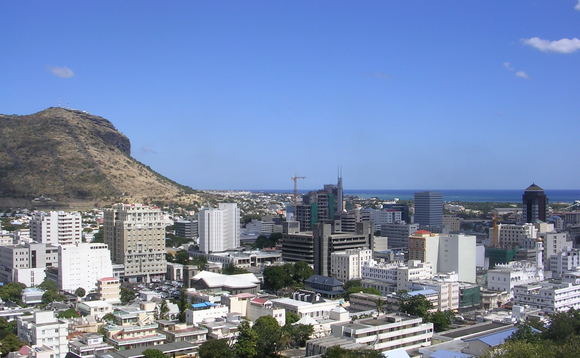
Indian investors reconsider structures

Proposed tax reforms are threatening Mauritius’ dominant position as the preferred foreign investment conduit for India
The irony of the double tax agreement (DTA) between Mauritius and India is that lawmakers in New Delhi were the ones who initially pushed for it. The year was 1982 and India was looking to drum up foreign direct investment (FDI) from wherever it could. Fast forward three decades and lawmakers in New Delhi are agitating to have the treaty reassessed in order to restrict round-trip investments.
Private equity isn't directly in the firing line - the Indian tax authorities are principally targeting wealthy Indians who leverage DTA benefits as they bring money onshore - but it is likely to be amongst the collateral damage. With Singapore offering a similar DTA-based package and more regulatory certainty, some fund managers are voting with their feet. Does this mean Mauritius' days are numbered as the preeminent conduit for investment in India?
"It seems to be the larger Indian private equity managers who are moving," says Arnold Tan, a partner at Rajan & Tann in Singapore. "We get the sense they are being asked by their institutional shareholders what their long-term plans are in terms of the coming India direct tax code."
Indian FDI statistics indicate a swing toward Singapore, but the jurisdiction remains some distance behind Mauritius. The portion of funds emanating from Singapore has grown from 3% in 2006-2007 to 8% in 2010-2011. Mauritius accounted for 30% of India's $2.4 billion in FDI in the 2004-2005 fiscal year and then 45% of the $24.5 billion that came in three years later. Although its share has since fallen, it still stood at 35% in 2010-2011.
Any company in possession of a tax residency certificate issued by the Mauritius authorities qualifies for DTA coverage and therefore isn't levied on capital gains arising from investments in India. This is conditional on a company incorporating in the jurisdiction, locating its primary banks accounts and books there, being audited locally and appointing two local directors.
Coming reforms
India and Mauritius set up a joint working group to review the DTA in 2006. Despite several rounds of talks, little appears to have been resolved. More importantly, the Indian government has laid down proposals for a new direct tax code, which would come into effect in April 2012. It includes anti-avoidance provisions that would allow it to target structures deemed only to exist for the purpose of leveraging tax benefits.
"India's courts have held that as long as the company has a tax residency certificate then it will be regarded as resident for tax purposes in Mauritius as opposed to India," says Craig Fulton, head of Conyers' Mauritius office. "Is that going to be sufficient in terms of anti-avoidance rules? Probably not. More will be required to establish substance in Mauritius - just having a flow through entity won't be enough."
To counteract these provisions, a fund would have to prove meaningful business activity in Mauritius. However, it is much easier to do this in Singapore. Investors globally are seeking onshore security with offshore perks - jurisdictions that are not tax havens yet offer favorable tax policies. Singapore's resident fund scheme fits the bill: By managing the fund locally and spending at least S$200,000 a year on administration and other services, full DTA benefits can be accessed and income tax at fund level is avoided.
Singapore is also the preferred location of fund managers. "You could have senior level executives move to Mauritius but people are more comfortable moving to Singapore," says Bhavin Shan, executive director for tax at KPMG India. "That is the most significant drawback."
No one AVCJ spoke to was ready to write off Mauritius completely. Some service providers and GPs suggest that the capital gains benefits will be watered down but not removed, while others highlight Mauritius' attractiveness in terms of cost, confidentiality, precedent, convenience and culture.
One GP tells AVCJ that his firm uses structures that include Singapore and Mauritius, citing increased flexibility. This relates in part to a key difference between India's DTAs with the two jurisdictions. A Mauritius entity is exempt from capital gains tax immediately but its Singaporean counterpart only qualifies for the benefit after a two-year holding period. This poses a problem for hedge funds as well as private equity players who seek quick turnarounds on PIPE deals.
There are also concerns about Singapore's lack of definitive guidelines on the tax treatment of carried interest; the fact that limited partnerships aren't recognized as legal entities under the resident fund scheme because they postdate it; and the S$50 million minimum capital requirement to qualify for the enhanced tier fund incentive scheme, which unlike the resident fund scheme, recognizes limited partnerships.
Whither Mauritius?
These obstacles may be removed in time and, even now, there are various workarounds. Service providers argue that the number of enquiries they are receiving from fund managers is evidence that regulatory certainty is worth the additional money, compliance requirements and general bureaucracy.
"This year is when the flood gates broke and next year interest will continue to grow," says Han Ming Ho, a Singapore-based partner with Clifford Chance. "Once word gets out that some of the more established PE houses are now in Singapore, not Mauritius, demand will increase."
The hit to Mauritius might ultimately be tempered by growth in its non-India business, although on a wider level the jurisdiction must deal with global pressure on tax havens. Conyers' Fulton notes that new incorporations in the jurisdiction are holding up thanks to investors seeking to leverage its other DTAs.
"A lot of investment in Africa is going via Mauritius because there are a lot of tax treaties with countries on the continent. Chinese banks are investing in infrastructure projects, and funds are investing in all kinds of things. For example, we have been working on the delivery of 60 Airbus A330s to South African Airlines," Fulton adds. "Mauritius is not a one-trick pony."
Latest News
Asian GPs slow implementation of ESG policies - survey
Asia-based private equity firms are assigning more dedicated resources to environment, social, and governance (ESG) programmes, but policy changes have slowed in the past 12 months, in part due to concerns raised internally and by LPs, according to a...
Singapore fintech start-up LXA gets $10m seed round
New Enterprise Associates (NEA) has led a USD 10m seed round for Singapore’s LXA, a financial technology start-up launched by a former Asia senior executive at The Blackstone Group.
India's InCred announces $60m round, claims unicorn status
Indian non-bank lender InCred Financial Services said it has received INR 5bn (USD 60m) at a valuation of at least USD 1bn from unnamed investors including “a global private equity fund.”
Insight leads $50m round for Australia's Roller
Insight Partners has led a USD 50m round for Australia’s Roller, a venue management software provider specializing in family fun parks.







